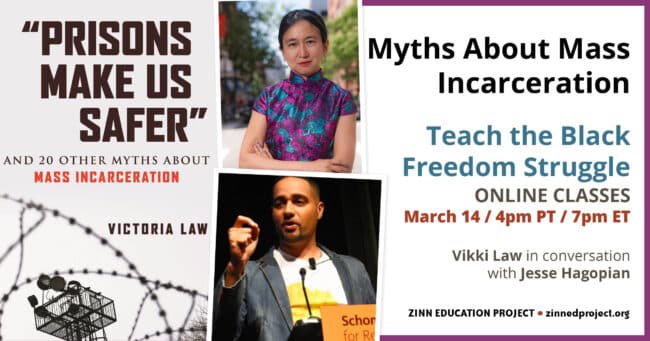
On March 14, the Zinn Education Project hosted journalist Vikki Law in conversation with Jesse Hagopian about how to respond and #TeachTruth about incarceration. As Hagopian said of Law’s recent book, “Prisons Make Us Safer”: And 20 Other Myths about Mass Incarceration is an essential resource for clearing away master narratives about imprisonment in our society. She not only takes on the distortions of the right, but challenges progressives to think more deeply about the root causes and outcomes of mass incarceration.”
Here are a few reactions from participants:
As an organizer this helped me break down how to make a case for something other than the carceral systems we have now. Law did a good job covering the gamut of arguments/myths for the current system. Law also used really accessible languages and examples/metaphors that can be cited in educational materials for the general public.
Thank you for the great conversation, your presentation made teaching about such a complex issue feel much more doable.
Great format — I really appreciated Dr. Theoharis’ introduction of Victoria Law and Jesse’s thoughtful questions. The chat today also had really amazing resources shared!
I really appreciated the conversational approach and the hosts made the conversation feel very comfortable and welcoming. There was a sense of community, which I really appreciated, especially since this was my first session. I was hesitant about the breakout groups, but it was nice to hear from others (who weren’t necessarily teachers). I liked that the chat box was used as a way for audience members to engage. I can’t really think of anything that didn’t work.
Video
Video of the full event, except the breakout sessions.
Transcript
Click below for the full transcript with resources mentioned in the discussion. Jesse Hagopian: It is wonderful to be with everybody. I am Jesse Hagopian, and on behalf of the Zinn Education Project, we would love to welcome everyone to our class today with Dr. Vikki Law. So glad you could be here. Some of you are joining us for the first time, and some of you have participated since we launched the series. It’s really a gift to be able to spend this time together, and I want to thank you all for being in virtual community with us. The Zinn Education Project is coordinated by Rethinking Schools and Teaching for Change, and we’re hosting this session today as part of our Teaching for Black Lives Campaign. We will share some info about that in the chat. We offer free downloadable people’s history lessons that you may have used before for middle and high school classrooms at the Zinn Education Project website. We are also very happy today to have ASL interpretation provided by Krystal Butler and MJ Jones. If you would like that interpretation, you can add ASL after your name in brackets for the breakout room placement with an interpreter. So, before we begin our conversation today, we want to find out who’s in the room and go through our plans for our time together. We’ve posted a quick poll that you’ll see in a moment to find out how many teachers are with us today, how many librarians, teacher educators, historians, parents, students, [and] other educators are with us in our class today. And many of you have multiple roles, so then you can just pick one that you see as your primary one. All right, thank you, the numbers are streaming in. We also have here members from our Teaching for Black Lives study groups. If you’re in one of those Teaching for Black Lives study groups, please add T4BL after your name. I also just want to note today that we are hosting this session during Howard Zinn’s centennial year; he would turn 100 this year, in August. As part of the anniversary ceremonies, we are highlighting Zinn’s writing about prisons, [and] his correspondence with prisoners and the prison abolition movement. We will share information about that in the chat, and with a follow-up email as well. So, it looks like those results are in from our survey. We have 30% of us in this room today are K–12 educators; 3% are K–12 students; we have 5% family members to a student; we have 15% teacher educators; 3% historians; and it doesn’t look like we have any librarians with us today, unfortunately. So call your librarian friends for our next session! They are more and more critical to the education process in our world today as books are being banned that would help students become racially literate. And librarians have always played an important role in pushing back on those kinds of bans. So, throughout the session, we want you to use the chat box to post questions, comments, resources and ideas. We’ll do a short evaluation at the end, and in about a week we will share the full recording from this session and all the resources that you all shared in the chat box. We also want to encourage you to tweet what you’re learning here today and invite other people to learn about this series. We are now getting ready to launch our conversation today. I’m very excited about this opportunity. We are going to start with professor Jeanne Theoharis, who helped launch this series two years ago this month. She has been a scholar and an advisor for the series ever since, and she is going to introduce Vikki Law and ask the first question. Then, after about 25 minutes, we’ll pause so that you can meet each other and talk in small groups to share your thoughts with one another. So welcome, Jeanne, thanks for being here with us today. Jeanne Theoharis: Thank you. And for those of you who’ve been here before, this is a slightly untraditional beginning. But I asked Jesse and Deborah if I could introduce Vikki, actually, for two reasons. The first was to echo what Jessie began with, which is what an honor it is two years into this series to be in community together. And thinking about these two years, how hard they’ve been; how isolating they’ve been; how many attacks there have been on teachers, on teaching the Black Freedom Struggle in particular. We are so honored to have you in community with us tonight. I wanted to say that also because it started with a very small idea of just a session, and it’s turned into this kind of glorious bouquet of community. So that was the first reason. But the main reason is because many of us in the room are educators or students, and I wanted to introduce Vikki, because Vikki was my student. My very first year at Brooklyn College, Vikki took a class with me and then decided she wanted to do an independent study on the prison industrial complex — that’s what we called it at that point, when we started our independent study. Then we did a second semester that kind of looked more at prison resistance. And this is Vikki as an undergrad; she’s an undergraduate student at Brooklyn College. And she keeps saying to me, we keep feeling like, “Oh, there’s not really very much on women. And particularly, there’s almost nothing on women’s prison resistance.” And so part of why I wanted to introduce Vikki tonight was because she took that absence that she saw as an undergraduate, and then spent the next I would say half dozen years, writing people in prison, researching prisons, particularly women’s prisons, to do her first book, which she calls “the never ending book tour” on Resistance Behind Bars. And so I wanted to ask the first question, because I wanted to talk about that process. Then we’re going to turn it back to Jesse, and we’re going to talk about your new book. But I wanted, because there’s so many educators here and because you’re, I think, the first scholar we’ve had who’s taken a non-traditional path — you didn’t go to grad school, you just embarked on the research yourself. And I know many people in the room are also scholars like that. So, can you tell us the story of the journey to this research, how you did it? Vikki Law: Sure. And thank you, Jeanne, for such a wonderful introduction. Thank you, Jessie, also for the wonderful introduction. So, as Jeanne said, I started this research as an undergrad. I did not go to grad school. And I think in large part, it was because Jeanne encouraged, and maybe pushed, me a little bit into examining this question more. Because I had this question when we did this, when I was researching resistance and organizing in U.S. prisons post-1970s. So specifically, what happens after COINTELPRO and the FBI and the federal government have decimated liberation movements? What happens when we have the war on drugs, and the war on crime, and escalating prison populations? What does resistance look like? What does organizing look like? Those of us who have studied any sort of historical movements know that organizing doesn’t go away. Resistance doesn’t go away, but it takes different forms. Again and again, what I was finding documented were resistance in men’s prisons, organizing in men’s prisons, movements in men’s prisons, or jails, or immigrant detention centers. And so I had that question all throughout our independent study, and Jeanne encouraged me to look at what women were doing. What Jeanne left out [of her introduction] was that when she really pushed me to do this work, I was about eight months pregnant. I was about to have a baby. I was not thinking that I wanted to do anything other than take my required math and science classes and get out at that point. I was not thinking I wanted to embark upon another course, let alone something that was going to be very intellectually rigorous and demanding. And also, at the time, we did know it was kind of groundbreaking because people were not doing this type of investigation and examination and exploration. What Jeanne did — and I often say this because I want people to understand that doing this kind of scholarship requires support — “You are a non-traditional scholar,” she said, “I understand you’re about to have a baby at any minute. Maybe even now. What I will do is I will not require you to schlep the hour on mass transit to campus every week at a set time. We will meet when it is convenient for you, we will meet where it is convenient for you. You can bring the baby if you need to, you don’t need to wrangle childcare. And the only thing you are not allowed to slack on is the scholarship itself.” So that meant we had meetings in libraries and in cafes, and my house and I would bring my newborn. I swaddled her up, sometimes Jeanne would have to help me to swaddle all the layers, to get the baby off of me. But we did that. And then I would present to her what I had found, [and] she would ask me more questions, say, “Hey, have you looked at this?” Or, “Have you tried reading that?” She would hold the baby while I was talking so I wasn’t feeling like I had to present while also holding a newborn. And we got through this semester and my exploration continued — because it became a fascination, and really sort of a drive to say, “Why isn’t anybody writing about this? Why isn’t anybody looking at the fact that when you incarcerate women as opposed to incarcerating men, they come to prison, and they enter prison, and they are in prison with the same sets of issues — bad health care, racist guards, overly long sentences, separation from their families — but you add a gender dynamic to it and the way that society genders people.” Then you also add in all of the gendered ways that prisons impact people. If you are a parent, and you are a mother in prison, you are more likely to have been the primary caregiver of your children. You are less likely to have that kind of family support that will step up and take care of your children if you go to prison. You’re more likely to have a history of abuse and violence at the hands of people who have said that they love you, whether it’s intimate partner violence, or family violence, or both. So these may be people that you do not want your child or small children to live with full time without your supervision and care. So, when you look at women’s incarceration, you start to add in all of these other layers that are missing from the discourse about the prison industrial complex. And then looking at what women themselves were doing to resist and organize — not simply passively accepting these terrible conditions, but what were they doing to make sure they didn’t lose custody of their children. Or what were they doing when they recognized the fact that many of them had been incarcerated for domestic violence related crimes, or because the legal system had failed them so many times when they were seeking to escape abusive relationships — that it opened up new ways of looking at what is resistance and what is organizing within prisons. Hagopian: Well, thank you so much, Jeanne, for asking that question. Because that was an amazing context to this whole conversation. I think it just shows the type of humanity we need too, when we’re approaching education, and meeting our students’ needs where they’re at, and helping develop them into scholars, with research that is so crucial for changing the world. That’s such a beautiful story. So thank you. Vikki, it’s great to be with you, and I want to thank you for writing your new book, Prisons Make Us Safer. I just think it’s such a great challenge to so many “common sense” narratives that actually don’t explain why mass incarceration is happening. It just seems so urgent to educators right now. You know, I began teaching fifth grade in Washington, D.C., back in 2001 and it was a completely segregated schools — like 100%, Black. I think in my third year, we had one white kindergartener. But I had a class, the first year I began teaching, where just about every single student in my class was dealing with the trauma of a loved one who was incarcerated, or who had experienced violence in the community. And there were many master narratives about why there are so many people — especially Black, Indigenous, people of color — who are in prison or jail. Your book does a powerful job of sweeping away these utterly false “common sense” narratives about why that’s happening. So, I want to begin by asking about why teachers should teach about prison, and the people who have been discarded by our systems in these cages? Law: Yes. It is an excellent question, because I think that when we look at incarceration we often see it as a separate issue from other social justice and racial justice issues. If we understand that, in the United States, incarceration is very much a racial justice issue, we can start from there. So even if you’re not in a classroom, or a school, in which there are students who are directly impacted — or you don’t think that you have students who are directly impacted — you can look at this as an issue that affects nearly two million people in the United States, and many more millions of people who have had a family member or loved one cycle through jails and prisons and are now home. But we currently have approximately 1.9 million people behind bars in the United States. So that is a very significant portion of our population right there. Also, for students who have family members who are incarcerated or have been incarcerated — particularly children, but also even adult students — there’s a stigmatization of having a loved one who’s locked up. They often feel like they can’t talk about it, they can’t seek support, or resources to help them process this, they feel ashamed and a sense of embarrassment. And they feel like they’re invisible. So, if we teach about incarceration, we teach that your mommy, your daddy, your uncle, your aunt, your cousin did a bad thing, and they are locked up, and they are a monster to society. When they’re thinking, “Well, I love my [insert family member], and I’m sad that they’re gone.” It starts by breaking down this kind of stigmatization to then allow them to think about what could have been in place to prevent their loved one from being locked up. What could have been in place to prevent any harm or violence, if harm or violence did happen, at the hands of their loved one who is locked up? Also, incarceration intersects with so many other issues. Again, when we look at it as incarceration is about ‘you lock up the bad people and they’re away from the rest of society,’ then you’re not thinking about how does housing, or lack of housing, push people towards criminalized activity or criminalization? How does education, poor education, being pushed out of educational systems drive people towards jails or to prisons? What about employment? And not just any employment that might pay you $5 an hour, but what about employment that pays a full living wage? Why are those two not seen as connected? Why are we not seeing more demands for resources that would prevent people from going to jails or prisons, or divert them from being locked up? Instead of saying, “We need more police, we need more prisons, we need more locked-in centers” that put people away for periods of time, but don’t address underlying issues. So, I think that it is important to start teaching about incarceration to children because it does intersect with all of these issues. When I first began my never ending book tour, I would go and I would speak on college campuses. Every single time at the end of each talk — there’s a line of people that wanted to talk to me about something or another and at the end of every line — there was always somebody that would say, [whispering] “My sister was in prison. She was always so ashamed. We hoped that nobody would ever find out. And I didn’t realize it wasn’t because she was a bad person. I didn’t realize there were all these other forces.” And these were people in their late teens, early 20s, later 20s. These were adults. So can you imagine being 7, or 10, or 12, and having that constant stigma pouring down on you and nothing that counters it, that says, “Let’s look at some of the systemic forces. If you only have a limited number of choices, yes, you have some choice, but what are the forces that help shape that? And then what can be done about those forces?” Hagopian: Those are the questions we need to ask. Thank you so much for breaking through that stigma and shame that too many students carry with them about incarcerated loved ones. We included a chapter in our book Teaching for Black Lives, called “Haniyah’s Story.” And it’s an incredible essay by a girl who has an incarcerated father and her experience with that — the stigma and shame she felt and how she worked through those feelings. So, I want to encourage educators to check out that essay in the book as one other resource to address the very things that you just laid out. But I want to move to some of the myths around the very title of your book and look at the fact that during the uprising of 2020, activists around the country really, I think, helped change the consciousness about the definition of public safety, and about police, through these mass protests that occurred across the country. Also by pointing out that the safest communities don’t have the most cops; they have the most resources. And [that] this was generalized across society and raised over and over again, I think had an important impact on consciousness. Your chapter two extends this argument to prisons. And you quote Kamadia, an incarcerated former nurse who says, “Americans have been sold the story, lock them up, and you’re safe. But you create a more dangerous person.” So I’m hoping you can talk about the conditions in prisons and jails and why putting more people in these cages doesn’t make us all safer. Law: Well, first, we need to think about the fact that prisons, if they happen, happen after harm has occurred, after some criminalized act has occurred. It doesn’t prevent people. I mean, everybody on this Zoom should think about what they did in the past two days: If it included murder, mayhem, robbery, rape, assault, and if it did not, in your last few days think about how much the threat of prisons deterred you from deciding to just go off on somebody at the grocery store and smack them with a baseball bat. And how much of that is not related at all to prisons or police or the threat of imprisonment? So, it’s not that prisons necessarily deter people from violent behavior or harm in the first place. What happens is you take people out of their communities, out of whatever support system — however imperfect it may be, however impoverished and under-resourced it may be — and you’ve placed them in an environment that is full of chaos and violence. People may have followed the chaos and violence that has been unfolding at Rikers Island, which is New York’s island jail lock-up. You don’t have money for textbooks, and all sorts of things in the school system, but we have money to lock people up on an island pending trial. You put somebody in that kind of system, and you expect them to magically get better, or become better, or be better? Then when people are put in prisons, they are also chaotic, violent spaces. And true, some prisons have programs that some people can access, but there often aren’t enough program slots for the number of people that need them. I think Arizona, a few years ago, said that they actually had way more people who needed drug rehab slots than the prison system was able to provide. So that meant that people who are being locked up for drug addiction were being sent to prison, and they were basically being warehoused. Again, in chaotic, violent situations, away from any support system, and they were not able to access any sort of drug rehabilitation or drug counseling. But what they could access, if they were able to afford it or scrape together the funding to afford it, was drugs. So what were you doing? You were just ripping them out of their community and putting them someplace else. So many people say that when they go to prison, they are not forced to reflect on any of their actions, whether or not they might have harmed somebody, whether it is directly harming somebody, physically harming somebody, or even harming somebody by saying, “Wow, because I was in the throes of addiction, I wasn’t there for this family member” or “because of this that I would prioritize, I wasn’t there for these loved ones, or I wasn’t present in the way that I had to be.” But there was nothing in prison that forces people to reflect on this. You are basically warehoused in prison, and for something like 90% of people, eventually you’re just let go. And there is no litmus test as to have you become what we might think of as a better person. Can you express remorse for your crime? Possibly, but there’s not, What have you done to improve yourself? There’s definitely not what have you done to improve your circumstances? Because you’ve ripped somebody out of their home environment. So, if they had a job, they no longer have a job. If they had a home, they no longer have a home. If they have kids, maybe they still have custody of their kids because a loved one took charge of their children, but maybe their children have been put in foster care and are lost. So then they have to rebuild from scratch, with the addition of a criminal record and a lengthy gap in a person’s resume that’s like, “Oh, I spent seven years in prison. I don’t know, working at the call center for the Department of Motor Vehicles, or making hand sanitizer,” neither of which really translates to jobs on the outside. So, prisons don’t actually address underlying issues. Instead, they just put people in these environments and say that we’re all safer because people are just locked away over there. Hagopian: Yeah, absolutely. Thank you for that. In your chapter 11, you get into the myth that mass incarceration only affects Black cis-gender men. And in that chapter, you write, “mass incarceration is often framed as a men’s issue, most frequently as a Black men’s issue. But focusing primarily on men ignores the fact that frequently, since 1980, women’s incarceration has grown at twice the rate of men’s.” You go on to point out how the specific issues that face LGBTQ people are often overlooked in the discussion of mass incarceration. So what happens to our understanding of mass incarceration when we tell the stories of women and LGBTQ+ people behind bars? Law: As I mentioned in responding to Jeanne’s question earlier, when we look at women behind bars we started to expand our understanding of incarceration. And when we look at the experiences of LGBTQ people behind bars, we also begin to expand our understanding even more, and we also expand our understanding of the cultural forces that push people into jails and prisons. I mean, specifically looking at the unknown number of trans people behind bars, if we look at the experiences of trans people, we see that it doesn’t just start with police putting handcuffs on them for criminalized behavior. For many it starts with being pushed out of what we would think of as social safety nets — whether it is being pushed out of their homes for being trans, being pushed out of schools because they’re not conforming to the gender they’ve been assigned at birth, or being denied services from medical professional for medical personnel, or at shelters or other places where cisgender or people who identify as a gender on their birth certificate would not experience. Then we also have the ways in which police and legislators criminalize LGBTQ people. I mean, we see this in Texas with the recent law that criminalizes parents who affirm their trans child’s gender identity. So, if you are a trans child in Texas, and you are fortunate enough to have parents who are like, “Okay, you’re trans, we accept you,” the state can now criminalize that parent for doing so. We can start to see how this starts to push people further and further into a criminalized existence. And the same thing with many states and jurisdictions that have what they call “walking while trans policing,” where basically if a trans woman is walking down the street, the police will target her as a supposed sex worker and subject her to stop and frisk arrest — often a violent arrest — simply for walking down the street. And this is something that cisgender women, particularly cisgender white women are not subject to. This is something that cisgender men are not subjected to. And police will use outdated, antiquated laws, [which] they do not apply equally — such as “you have three condoms in your bag, therefore you must be a sex worker.” Maybe they just came from a clinic and grabbed a bunch of condoms. Maybe they just went to the drugstore and bought a pack of condoms. But it is, again, something that somebody else who is cisgender — some frat boy or some stockbroker walking out of a Duane Reade or a bar with a pack of condoms, thinking that tonight he’s going to get lucky — is not going to be subject to the same policing and arrest and criminalization as a trans person. So when we look at LGBTQ people and women behind bars, we can start to see other structures that push them into jails and prisons, not just the structures that we traditionally see when we’re looking at men in prison. Hagopian: That’s so important to see these overlapping structures, because then we can think about how we dismantle these overlapping systems of oppression if we really want to tackle all segments of the population that are subjected to mass incarceration. The disparities in the way we treat different segments of the population that you pointed out are just so glaring to me and it’s just incredible what we see get criminalized and what we don’t, to me. I mean, like the stockbrokers, the bank owners that sabotage the global economy, their behavior doesn’t get labeled as criminal behavior, and they get rewarded with bailouts. But people who commit petty crime will spend large portions of their life behind bars is unbelievable. I think it’s so great how your book points out all the disparate impacts of mass incarceration. We just have a few minutes, like three minutes, and I had two questions I was hoping to get to before the break. But we’ll see where we get, and we can pick up after the break as well. I wanted to ask you about chapter 14: Most people are in prison for nonviolent drug offenses — let them out and we’ll end mass incarceration is another myth you tackle here, and you point out that the prison population has nearly doubled between 1990 and 2000. You write that “the myth of mass incarceration as caused by nonviolent drug offenses is rooted in some of the same laws that helped fuel the prison expansion. But nonviolent drug offenses have never been the sole cause.” So what’s wrong with framing mass incarceration primarily in terms of nonviolent drug offenses, as I think many liberals do today? And how does the story of Mary Fisher and others that you talk about in the chapter help us debunk this myth? Law: Well, I think that one of the things about the myth that if we let people out who are incarcerated for nonviolent drug offenses, we’ll end mass incarceration is that it’s just inaccurate. I mean, today the Prison Policy Initiative — which does a tremendous amount of research and data collecting on mass incarceration — released a report that found that last year only one in five people who were incarcerated were locked up for a nonviolent drug offense. So we would reduce the prison population by 20%, which is great. I’m not arguing against continuing to advocate for the repeal of these laws that criminalize drug use and lock so many people up, but we also shouldn’t be seeing that as the end goal. And we shouldn’t be doing this at the expense of people who are classified as “violent” — and I put violent in quotes because people can be charged with a number of different crimes, depending on what the prosecutor feels that they can get away with. So, they can label something as a violent crime or a non-violent crime depending on the circumstances, and how much they want to actually pursue the case. At the same time, we need to also address the fact that there is violence in our society. And as you pointed out, there’s a way in which society labels some things as violent and heinous and in need of being locked up, and other actions that are very harmful — like destabilizing the economy, drawing millions of people out of work, taking their retirement funds and pissing them away down the toilet — are not seen as harm or crime in the same way. And people are not subject to the same sanctions. But I think focusing primarily on nonviolent drug offenses then limits our vision of what we can do. At the end of the day, we’re still left with this bloated prison population, which again, doesn’t make communities or individuals safer or more whole, and instead continues to feed this prison industrial complex that will just continue to lock people up — and again, lock up people with the fewest resources. Hagopian: That’s right. Thank you so much for this orientation to how to think about mass incarceration and the impact on the families and students that we are teaching, and then our own families, as well. I have a few more questions that I’m really excited to get to, but we’re going to hold those off until after some of the educators and our community gets a chance to discuss what they have learned already. Your book really takes on the idea that the system is broken. One of your chapters is “The myth that the system is broken, and we only need some reforms to fix it.” You write that, quote, “some of the most visible and vocal discussions around mass incarceration often revolve around the premise that the system is broken and can be fixed with some tinkering. Incarceration should only be used for the most dangerous people, goes the new wisdom. And at the same time, prison conditions need to be fixed so that incarceration can become rehabilitation or restorative. But the criminal legal system isn’t broken; it’s functioning as intended — as a form of surveillance, control, punishment, and a way to conceal rather than address society’s problems.” So, I was hoping you could expand on how and why you think the system is working as intended. And in there you quote Ruth Wilson Gilmore talking about “non-reformist reforms — could you talk about what those could be? I love that concept and [was] hoping you could talk more about that. Law: Sure. So, when we think about prisons we should think about the fact that they have been designed, to paraphrase Angela Davis, [“The prison has become a black hole into which the detritus of contemporary capitalism is deposited”]. Prisons and incarceration does not fix society’s problems. Instead, what it does is it takes people who symbolize or emblematize society’s problems and puts them in this black hole so we don’t have to see them. And then they say we fixed it, but it actually hasn’t solved poverty, or racism, or misogyny, or child abuse, or any of the other issues, like lack of affordable housing. And all of these other issues that society is built off of. Instead, what it does is it pushes people out, and then says, “Okay, we’ve fixed the problem. We’ve taken the bad apples out of society. We’ve put them elsewhere, and now everything is fixed.” What this does too, is it allows the state to continue functioning as it is because it doesn’t push lawmakers or the general public to say, “Hey, why is it that there is so much of this? Why is there so much poverty? Why is there so much racism? Why are some of our schools falling down, falling apart? Why are so many people with mental health needs going without treatment? Or why are people who are exhibiting some mental health needs being diagnosed with labels such as schizophrenia and given really harsh, strong medications because the doctors have just decided that you are Black and therefore you must have schizophrenia; you are a woman, therefore you must have hysteria so you get this, instead of looking at underlying causes of what is happening to people and what is causing their mental health problems and conditions. So, some of the reforms that have been proposed that we think about, that are very popular — such as letting people out of jails or prisons on electronic monitoring. For viewers who don’t know what electronic monitoring is, it’s when somebody is let out and they have basically a GPS device attached to their ankle at all times. It is frequently accompanied with house arrest, in which you are told you’ll stay in your house except for any pre-approved hours — usually like two to four hours a day, unless you have a job, in which case then maybe you can go to work. Every other movement out of your house has to be pre-approved by a probation officer, a parole officer, an electronic monitoring company. It varies place by place, but somebody has to pre-approve a list that you submit or schedule to submit in advance that says, [for example] “From 10 to 11, I will be at the grocery store on 29th Street. From 1 to 2, I need to pick up my kid from school. From 4 to 5, I might need to go to the library to use the computer to fill out job applications.” And they can say, “Yes, you can go to the grocery store. Yes, you can pick up your kid. No, you can’t go fill out job applications. Yes, you can go to a doctor’s appointment. No, you cannot go to your grandma’s funeral.” So, they basically have mastered that; they are masters of your movement. You don’t experience freedom, you experience a little bit more freedom in that you don’t have somebody barking at you to get up out of your bed five times a day to stand up and recite your state ID number. You have the freedom to go to your refrigerator, and if you are allowed to go to the grocery store, take something out of your refrigerator and eat it. But you do not necessarily have ways to go out and rebuild your life. I want to emphasize that it is another way of keeping people under surveillance and control and punishment without the physical cages. I want to emphasize that it’s not so much that it is the physical buildings and cages; it also is the ways in which the state can continue to control and punish people. So that’s a prime example of a “reformist reform.” A “non-reformist reform” would be what we saw some jurisdictions do during the pandemic, which was to let people out. A “non-reformist reform” might be what we see every year around Mother’s Day in certain places where grassroots organizers do Mama’s Day Bailouts — where they raise money to post bail to mothers in jail awaiting trial. And they are only in jail awaiting trial because they cannot afford bail, which is the amount of money to be pushed to the court that says, “I will come back to court because I do not want to lose that $500.” It is not based on dangerousness or flight risk, it really is just “I give you money, and I get some freedom.” Similar to buying Black people out of bondage during chattel slavery. So every Mother’s Day, organizers fundraise like mad, and they get some funds, some tremendous amount of funds, and they bail Black mothers and Black caregivers out of jail, and they also help provide them with resources. So it’s not like you get out of jail after six months and you’re homeless, you don’t know where your kids are and it’s like “too bad. So sad. Go live at the bus stop.” It’s okay. What else do you need? Do you need a room to stay in? Do you need somebody to drive you to wherever you go to get your ID? Do you need help navigating these things? Do you need somebody to remind you your court date is on the third of April so you don’t miss court and end up back in jail.” So, providing those resources. It’s a “non-reformist reform” that understands we have to work with this system that we have, but we don’t have to work to prop up the system and keep it going. We can work to get people out in a way that doesn’t continue controlling and punishing them. That’s such an important distinction to make about the types of changes we want to make, because during the uprising I think the system realized that it was under ideological assault by the movement, and it began to propose reforms that would actually perpetuate mass incarceration in the guise of altering the system. Hagopian: I really appreciate you illuminating that distinction. We’re getting some good questions in the chat too, from educators who are grappling with these issues and thinking about how to teach it. So, I thought I’d ask you one from someone who’s with us here today who asked, “How do we move forward with abolition while also keeping survivors and victims in mind?” Law: Yes, that’s an excellent question. I mean, abolition is not just letting people out of jail and prison and we all live in a Mad Max world where only some people survive. It is actually saying what is needed to prevent harm and prevent further harm to both parties. It is not just we focus solely on the person who has done the harm to the detriment or overlooking of the survivor, but also saying what else do people need. Because what the current legal system does is, maybe you get a little bit of therapy, maybe you get a little bit of monetary support if you need to take off work or if you have medical bills to pay — but you don’t get ongoing support to help heal. So I think part of it is — and there’s not a one size fits all. It’s not like I take this cup away, that is prison, and then I put a similar shaped cup in the same place. It might look like I take this cup away and then this person over here, or this scenario, might look like this. And this other scenario might look like that. Some scenarios might be like, “You don’t need to lock people up because they’re walking down the street, because they’re transgender.” The scenario might be like, “You don’t need to criminalize people for being homeless.” But some scenarios might be, “What do the victims and survivors want?” Again, going back to the Prison Policy Initiative report that came out yesterday, or today, they actually quoted a 2016 crime survivors speak report where they asked, “What do victims of violent crimes really want?” And 82 percent said they preferred investing more in programs for at-risk youth and other crime prevention programs than in more prisons and jails. Sixty-nine percent said they preferred holding people accountable through different options beyond just prisons, versus 25 percent that said, “Yeah, put them in prison.” Over half said they think that prisons make people more likely to commit crimes. So I think we can’t think of victims and survivors as the people who are barriers. But when you are a victim or a survivor — particularly of violence — and the cops come and they say, “Well, do you want to file a report and try to send this guy to prison?” Or, “Do you want us to do nothing and go watch TV on our phones?” People will say, “Well, I want something to happen. I don’t want nothing to happen.” But if you give people only two options, people then are forced into this false binary of “do I send somebody to prison, or do I not.” We also have to remember that, according to the [Department] of Justice’s [Office for Victims of Crime] report, the majority of people who are victimized by violent crimes reported themselves that they did not report these crimes to the police. So, the majority of people are actually not picking up the phone and calling 911 to begin with. Then, of those that do, many of them are not necessarily wanting the person to go to prison for lengthy sentences. They just want something to happen. They also want their own needs met, which prisons do not do. Hagopian: Yeah. Actually, I hadn’t thought about it quite that way, or realized that number that you just referenced in terms of how many people actually don’t even report their crime. Just thinking about how we transform the conditions of our society so that people aren’t living in desperate situations that are producing this is so important There’s been several questions and comments in the chat from educators who are pointing out that there is a school-to-prison pipeline, or a school-to-prison nexus, where schools increasingly resemble prisons in terms of metal detectors and pat downs and surveillance. That also makes me think about the many school districts that are moving to implement restorative justice as a counter to the school-to-prison pipeline. But I think oftentimes that implementation is more of box-checking to say we are addressing this well-known crisis rather than substantive change. So, I’m wondering maybe if you could comment about that in the context of moving towards more robust, restorative, or transformational justice programs in schools? Law: I mean, some schools have done the work of trying to implement restorative justice or some sort of transformative justice. But for many schools, like you said, it is a box to check off. Like, “Oh, yes, we’re doing this now. We used to do these types of things. Now we do these types of things.” Some schools continue to defer to the school police. In many schools those are called school resource officers, as I’m sure almost all of the viewers who are educators know. So, implementing restorative justice means that you have to have buy-in from the teachers and the other staff who work at the school. It means shifting power away from the school policing system — which, as we have seen in 2020, when people talk about defunding police, whether it is police on the streets, or police inside the schools, they get very heated. And they really dig in, because you’re threatening their power, you’re threatening their ability to do what they see as their jobs. They’re not saying, “Gee, sure, maybe I can go do something else. Maybe putting handcuffs on five-year-olds is actually not the dream that I had when I was 12. But I think that it involves a mind shift away from this idea that you have to punish people. Because what we’re seeing again and again, with police in schools — particularly in schools with marginalized students, Black, Brown, immigrant, low-income students — is that having police in schools is more likely to end up with children getting arrested for school infractions that people used to just get detention for— you know, go scrape gum off the desks if you got into a fistfight or you threw milk at somebody in a food fight in the cafeteria, but now you end up in handcuffs, and you get hauled into the precinct. So I think that restorative justice, and also looking at who are the organizers and what are the organizations that are providing the guidance for restorative justice? I mean, Angela Davis’s sister Fania Davis started Restorative Justice for Oakland Youth — I might be mangling what the actual words are, but it’s RJOY — specifically to do restorative justice work in the Oakland school system. It was not something devised by the school police system, or the local Department of Education, it was people who are dedicated to saying, “How do we implement this in our school system, understanding that our schools are mostly Black and Brown, understanding that they are under-resourced, understanding that these kids come from marginalized and over-policed communities. What does that look like? Hagopian: Thank you for raising Fania Davis’s program, because I think that’s really the model we need to be moving towards, where we actually have people who are committed to decarceration, that are committed to abolition, helping to design the restorative justice program, and then actually training educators and communities in the practices that can help us move away from harm and punishment, and toward healing. Because just saying that we want to reduce suspension rates, while that’s a great goal, I think if we don’t actually have restorative justice counselors, if they’re not funded, then we don’t actually put a new system in place that can help solve these problems. So I think that’s a really great example. Somebody just asked in the chat, “How many people are incarcerated just because of inability to pay bail and who are awaiting trial? The majority of people in prison are not violent, the over criminalization of so much that many countries don’t.” That was from Jackie Newberry. I’m wondering if you wanted to address that? Law: I mean, again, going back to that Prison Policy Initiative report — and I dropped the link to it in the chat — there are about 113,000 people in jails who have not been convicted. And I’m not clear, I don’t know how many people are there because they can’t post bail versus a judge has remanded them — meaning the judge has said you will not get out of jail because I say so, or because I think you’re dangerous, or because you have prior convictions or whatever. But there are 113,000 people, as of last year, who were not convicted that were sitting in jail. And each of those 113,000 people has other people who are affected by their inability to be at home, being part of their family or their community. It means somebody is not helping with the caregiving of other family members; they’re not helping with the bills; they’re not helping with the housework; they’re not helping with all of the fabric of the community. I was going to say they’re not helping to tutor or do Little League, but we weren’t doing those until fairly recently. But they’re not doing all of these things that being part of a community entails. Then that means that these communities are also having members ripped out for long periods of time, because even though we have this right to a speedy trial, the court system has always been backed up. Then during the pandemic, when courtrooms were closed, they got even more backed up. And now that trials are opening, there’s still a huge number of people sitting in jail waiting for their constitutional right to their day in court, because trials have been very slow. I think that last October, of however many hundreds of people sitting at Rikers Island awaiting trial, I think there were less than 12 trials actually happening in the five boroughs at that time. So, that meant all those hundreds of other people were just sitting in jail doing nothing and waiting for that day in court. Hagopian: Land of the free . . . Unbelievable. There’s some great resources that people are sharing in the chat. Thank you everybody who was dropping things that can help us all in this struggle. I wanted to shout out the book called Pushout by Monique Morris, who looks at how specifically Black girls are the highest percentage of over-suspended students across the country, and how they often get erased in the narrative of Black boys in the school-to-prison pipeline. So that’s an important resource for people to check out as well. And then people just talking about the struggle to get police out of schools as well, that I think is such an important part of this conversation. It was amazing to see the wave of school districts in the wake of the 2020 Uprising expelling police — starting in Minneapolis, but St. Paul, and in my own city. I was so proud of these two girls at Rainier Beach High School that started a petition to remove police and they got 14,000 signatures in just a couple of days. They pressured the school district from its original position of “We will take a year to evaluate whether we want police or not” to just immediately expelling them. It’s an incredible victory for youth organizing, and for abolition, and just hopefully we can build on that momentum around the country, with a lot of the educators right here in this room, can begin that conversation in your school district. So thanks, everybody, [for] dropping those resources. That just gets me to a question about prisoner organizing that you talk about in the book that I think is such an important part of this conversation, to not leave out the most impacted people by mass incarceration in their own self advocacy. Your chapter 15 looks at organizing and resistance of prisoners from the Attica Uprising in 1971 to the Pelican Bay State hunger strikes in 2011, and then again in 2013. And also to women prison organizing and resistance in ICE detention centers, which has happened a lot around me. There’s an ICE detention center in Tacoma, Washington where there’s been numerous hunger strikes and other forms of resistance. So, what should educators teach about the history of resistance to mass incarceration from the incarcerated themselves? Law: I mean, I think that they should just teach about resistance and organizing in the same way that we would teach about the civil rights struggle, or current struggles for equality, or current struggles against some of the oppressive legislation that is coming out. So, you can weave that in as you’re talking about incarceration, and pulling apart some of the myths is also to say, people have gone on hunger strikes. Depending on the age, I guess, of the children are teaching where you could talk about the fact that they organize a letter-writing campaign, which is a form of organizing and resistance that people often don’t think about when they think about prison organizing. They think about the riots and the rebellions and the work strikes and all the very visible things, but they don’t think about the fact that in one prison dozens of women all wrote the same letter to say, “Hey, we don’t want the state of California to build a new women’s prison, like don’t do this in our name.” Or more recently, here in New York, because of this crisis on Rikers Island, our giant jail complex on an island, the state decided they were going to try to move all of the women off of Rikers Island to one of the upstate women’s prisons about 45 minutes away. Over 120 women signed a petition that said, “Do not move us. Even though conditions here are deplorable, we do not want to be moved further away from our families. We do not want to be punished because you can’t run your jail right. If you’re going to be doing something you shouldn’t be letting people go; you should not just be shuffling us from one lockup to another.” So you can look at the ways in which people are resisting and organizing, and you can put that in the context of people challenging injustice, people organizing against injustice. If they don’t collectively organize, people mount individual resistance, and what does that look like? In the same way we talk about Jim Crow laws and how people mounted resistance to this, in the same ways that we talk about what’s happening with laws against migrants coming in, and how do people mount resistance to that as well. So, I think it can be woven in depending on the topic and then the age of the students as well. Hagopian: I like this comment from Heidi Jones, as well, [which] says, “Letter-writing reminds me of how the Black Panthers would teach writing in freedom schools by having students write letters to people who are incarcerated.” That’s a cool history, also. We are coming up on time. I thought I’d ask one last question from somebody in the chat and then we will wrap up. Please don’t drop off because we really want to make sure that everybody here fills out an evaluation before you go and gives us some feedback on this session. But we’ll have a last question here from Carolina Goodman, who asks, “We agree that prisons aren’t the way to ensure public safety. Prison towns are dependent on the prison industrial complex for their livelihoods. So, how do we envision a transition to something different?” Law: Well, I think that first of all, we need to stop promoting prisons as job creators. Because for every job that is created, you’re taking away people from other communities, and you’re not giving them jobs, you’re just locking them up. But I think it’s also a challenge then to people who do other types of economic justice work or other types of advocacy to say, “What about jobs? If we’re talking about jobs, or if we’re talking about economic development, what does that look like in places that have been abandoned?” I mean, earlier we talked about Ruth Wilson Gilmore’s “non-reformist reforms,” and I’m going to throw [out] another term that she uses, which is “organized abandonment.” How do we look at organized abandonment in these often rural, often predominantly white places that have suffered from organized abandonment, where whatever industry they had is long gone, or has been bought up by Monsanto or whatever, and they’ve turned to the prison as their economic incentive? I don’t think it should be on people who are directly impacted by incarceration to come up with the solutions. There should actually be solutions that are brainstormed by people who are doing work around creating jobs, creating new green jobs, new green deals, whatever other economic incentives there are, because what we see is that prisons come in and people don’t necessarily have a better way of living. I mean, I was in Frostburg, Maryland a few years ago, population like 10,000, and it was next to Cumberland, Maryland. Like it was literally the next town over was Cumberland, Maryland, where the prison population of the three prisons was 11,000 altogether. But Cumberland, Maryland, nobody wanted to live there. Nobody wanted to live in the prison town. They all went over to the cute college town or they went to some other town to live, [and] they just commuted in. So, it didn’t necessarily revive the town of Cumberland, Maryland to have three giant prisons in their town limits. I’m not quite sure if it actually boosted that particular town’s economy versus the surrounding neighborhoods that then got the cute cafe, the movie theater, the people that wanted to live there because they could drive to work but not live in the same town as three giant prisons. Hagopian: Wow, what a rich conversation. Thank you so much for supporting us all in being able to educate our students about the realities and impacts of mass incarceration and break down all these myths. Please go out and get this book. While this transcript was edited, there may be minor errors or typos — if you notice something you believe to be incorrect please contact us at zep@zinnedproject.org.
Transcript
Audio
Listen to the recording of the session on these additional platforms.
Resources
Here are many of the lessons, books, articles, and more recommended by the presenters and also by participants.
Lessons and Curricula
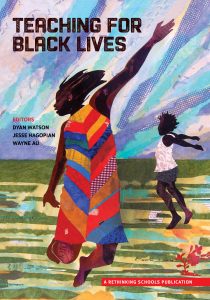 |
Teaching for Black Lives edited by Dyan Watson, Jesse Hagopian, Wayne Au, published by Rethinking Schools. The book includes a section on “Discipline, the Schools-to-Prison Pipeline, and Mass Incarceration.” One of the readings in that section is “Haniyah’s Story.” |
Books
|
|
In addition to Vikki Law’s “Prisons Make Us Safer”: And 20 Other Myths about Mass Incarceration, Resistance Behind Bars: The Struggles of Incarcerated Women, and Prison by Any Other Name, check out the Social Justice Books Incarceration book list for more books about incarceration. |
Articles
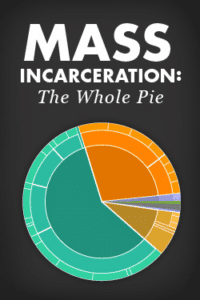 |
“Knock, Knock: Turning Pain into Power” by Linda Christensen (Rethinking Schools) “Mass Incarceration: The Whole Pie 2022” by Wendy Sawyer and Peter Wagner (Prison Policy Initiative) “Normalizing Justice: The Dangerous Misrepresentations that Define Television’s Scripted Crime Genre” by Color of Change and the USC Annenberg Norman Lear Center. A comprehensive 2020 study from Color of Change of how television’s most popular genre excludes writers of color, miseducates people about the criminal justice system and makes racial injustice acceptable. |
Film
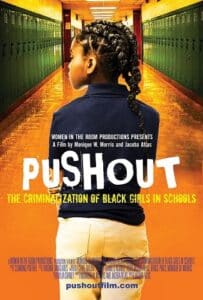 |
Pushout: A Documentary, about the criminalization of Black girls in schools (2019) PBS’s Why Race Matters episode, The School-to-Prison Pipeline (2021) |
This Day In History
Additional Resources
|
|
Mother’s Day: A Campaign for Peace and Black Mama’s Bail Out These organizations raise funds to bail out as many mothers and caregivers as possible on Mother’s Day.LGBT Books to Prisoners A trans-affirming, racial justice-focused, prison abolitionist project sending books to incarcerated LGBTQ-identified people across the United States.Free Minds Book Club & Writing Workshop Uses the literary arts, workforce development, and violence prevention to connect incarcerated and formerly incarcerated youths and adults to their voices, their purpose, and the wider community. Certain Days: Freedom for Political Prisoners Calendar Freedom on the Move: Rediscovering The Stories Of Self-Liberating People Restorative Response Baltimore’s “World Without Prisons” Shirt |
Participant Reflections
What was the most important thing (story, idea) you learned today?
The process of rethinking the prison system and how we can move towards demystifying what incarcerated people experience, especially women.
The safest communities don’t have more cops. They have more resources.
“Shame isolates — storytelling connects.”
The reminder about the role of women in prison resistance/organizing and how often overlooked they are in the research and conversation about incarceration.
I learned that there must be an alternative to either arresting or doing nothing when an individual commits a crime. Also, how some schools resemble prisons — which is another indicator of the school-to-prison pipeline. I learned that there must be space to process for students of incarcerated parents/caregivers and a space where they can honor them in some fashion. Therefore, beginning to process the intergenerational pain, shame, and stigma of incarceration.
How there are so many systems that work together to keep class and race as those in power want them to be.
The system is not broken, it is working as intended.
Hearing from individuals affected directly and indirectly how important it is for educators to help them tell their stories. Stories connect/shame of incarceration isolates
To give children a space to talk about people they love who are incarcerated. That there are people just waiting for trial who can’t afford bail.
The impact incarcerating women has on each woman’s family and community and how women are not adequately counted or represented in information reported on incarceration.
What will you do with what you learned?
Continue to fight for police-free schools.
Share with our K-5 librarian.
Share ideas with my school on how we can support students and families who have members who may be incarcerated. Share on social media organizations and the Mother’s Day Bailout.
I used Jeanne’s book in classes I taught in prison while incarcerated
I have saved the book list from Social Justice Books and will try to buy a few to incorporate in my library. As the interventionist for Kindergarten in my building, I have a different relationship with students than classroom teachers — I think that I have a better chance of being able to have conversations with students about incarceration.
Framing myths v. realities in reaching and teaching students, especially those most at risk for school-to-prison-pipeline prevention.
I want to get more books in my classroom about incarcerated family members to help my students feel safer and included in our classroom.
I plan on buying the book and reading it. I envision creating a unit or mini-unit on modern forms of oppression and using mass incarceration as my example. I am thinking of giving the students a list of the myths to reflect on what they think about it, if they agree or disagree with it. This can then turn into a 4 corners activity. I would use excerpts from her book, as well as some of the children’s books that were shared, and video clips that were shared by fellow educators and advocates as ways for students to learn more. I saw that Vikki Law also created a zine. I have been wanting my students to create a zine as well and was thinking of having students create their own using what we do in this unit.
I volunteer as an organizer, against white supremacy and mass incarceration and I will use this insight to agitate, educate, mobilize the people that I recruit and organize with.
Please comment on the format. What worked, and what didn’t?
I enjoyed the breakout room time to reflect and share ideas.
Love these sessions! Participants self-select as highly motivated, deeply caring educators.
Using the variety of the sessions engages people in many ways. I appreciate it.
I thought it was going to be a webinar, so I was pleasantly surprised when I showed up and could see all the other participants’ faces. I think learning in a community like this is much more powerful than just watching a few panelists speak. I appreciated the breakout room space to share my thoughts and hear from a few other participants.
Presenters
Victoria Law is a journalist who researches and writes about incarceration, gender, and resistance. She is the author of “Prisons Make Us Safer” and 20 Other Myths About Mass Incarceration, Resistance Behind Bars: The Struggles of Incarcerated Women, and the co-author of Prison by Any Other Name. Law is a co-founder of Books Through Bars–NYC and editor of the zine Tenacious: Art and Writings by Women in Prison.
Jesse Hagopian teaches Ethnic Studies and is the co-adviser to the Black Student Union at Garfield High School in Seattle. He is an editor for Rethinking Schools, the co-editor of Teaching for Black Lives, and editor of More Than a Score: The New Uprising Against High-Stakes Testing.

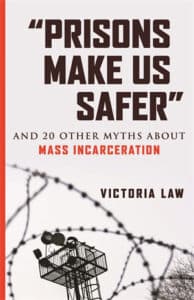

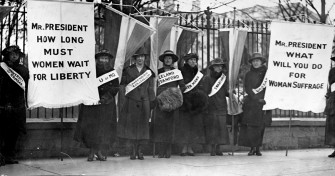
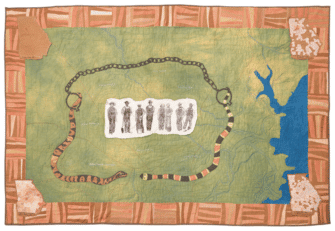
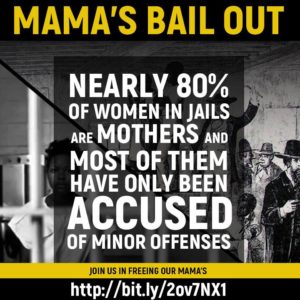
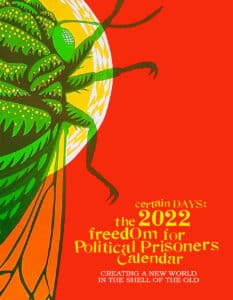

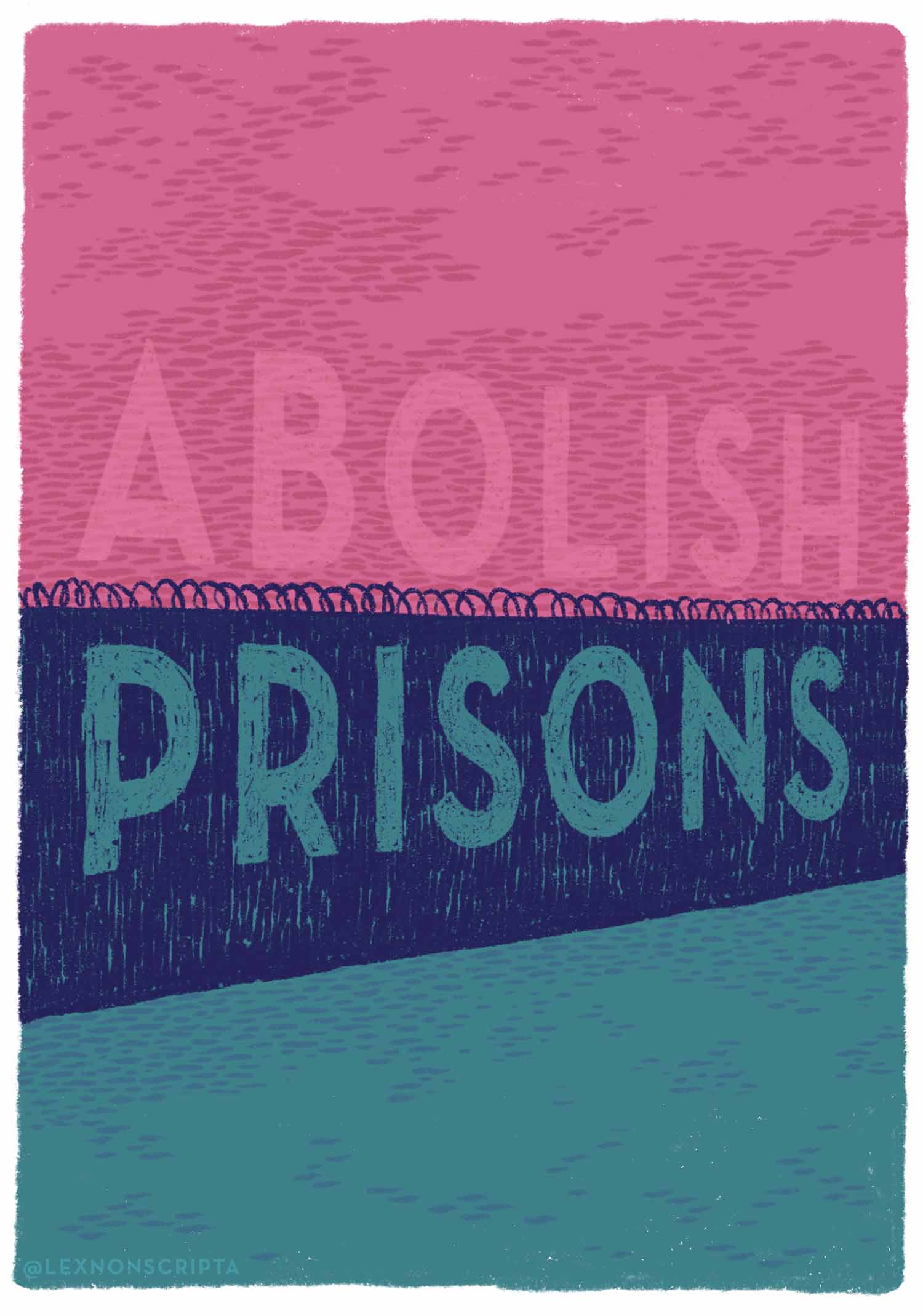
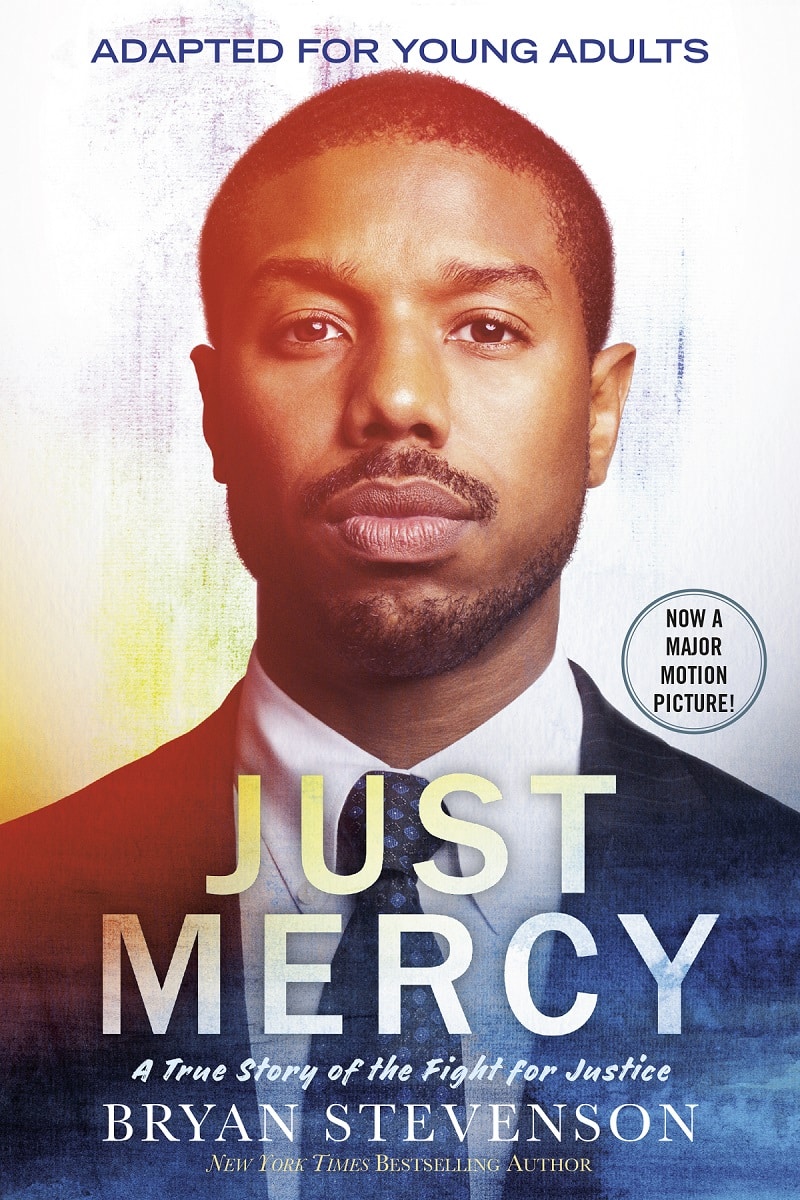
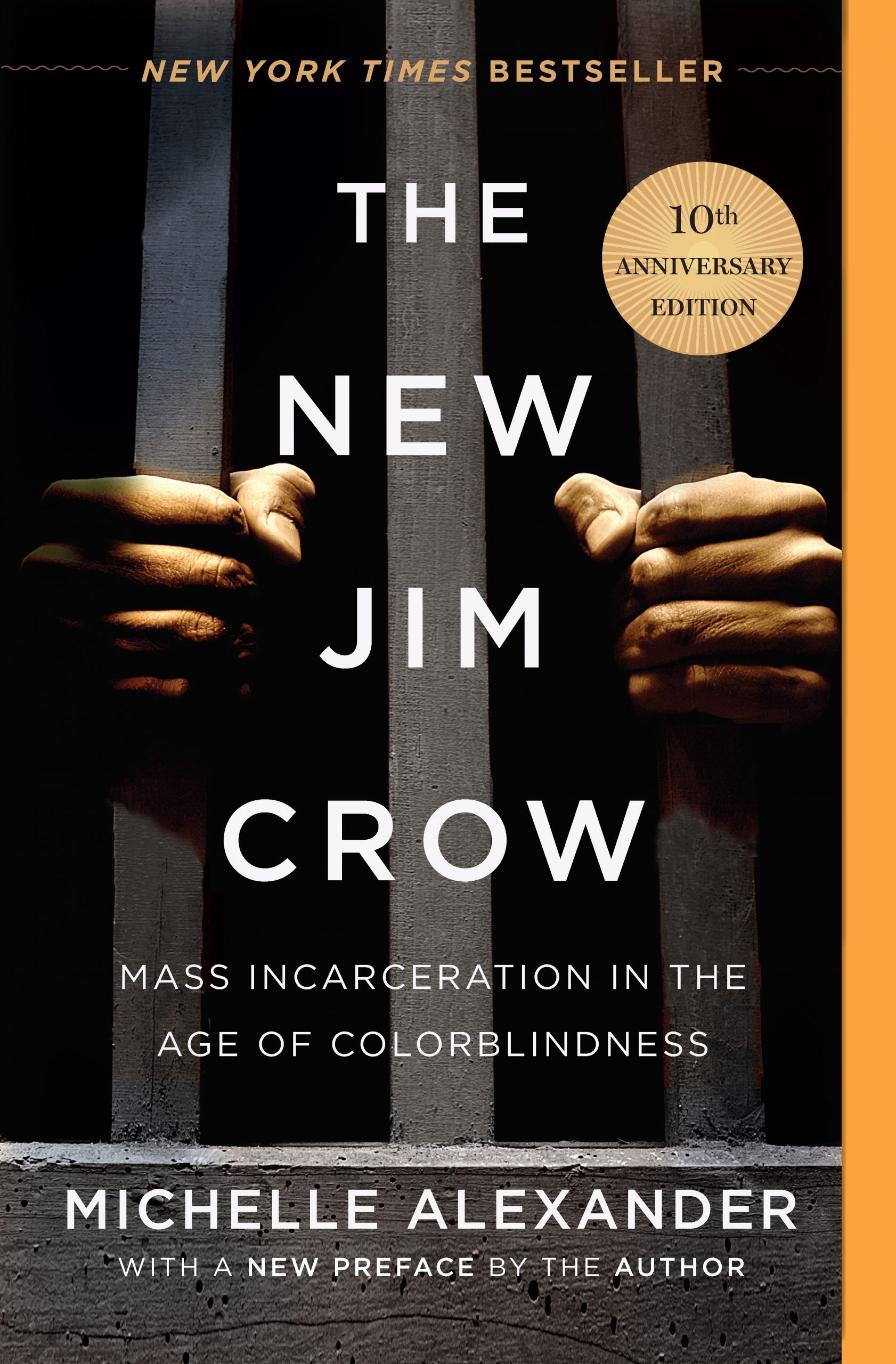
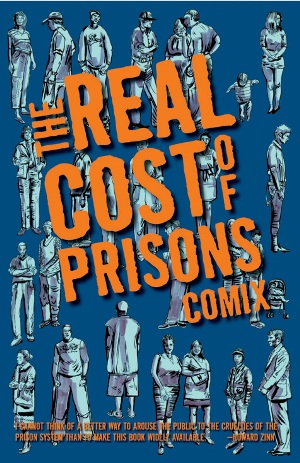
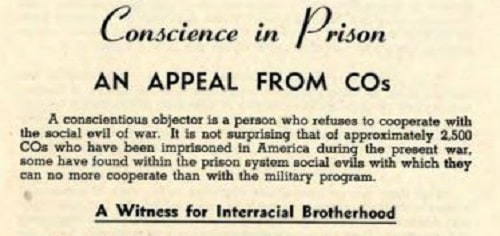
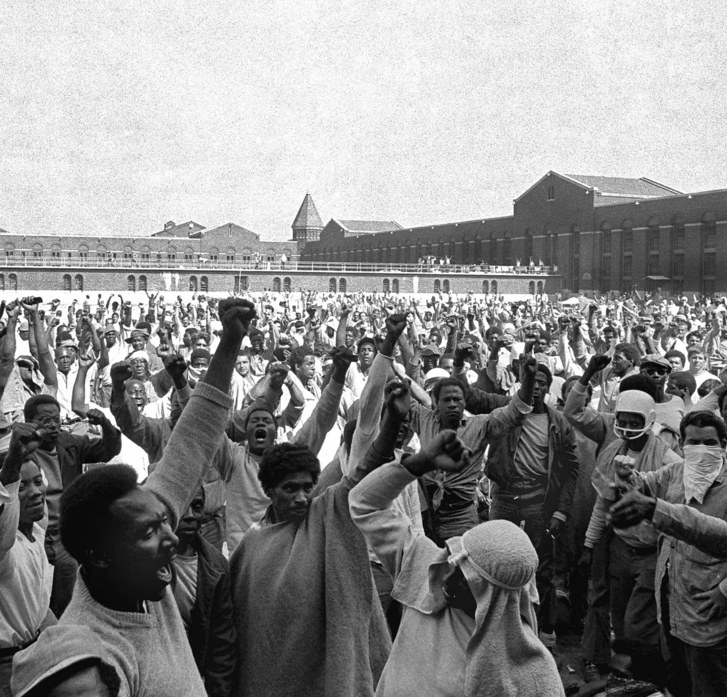
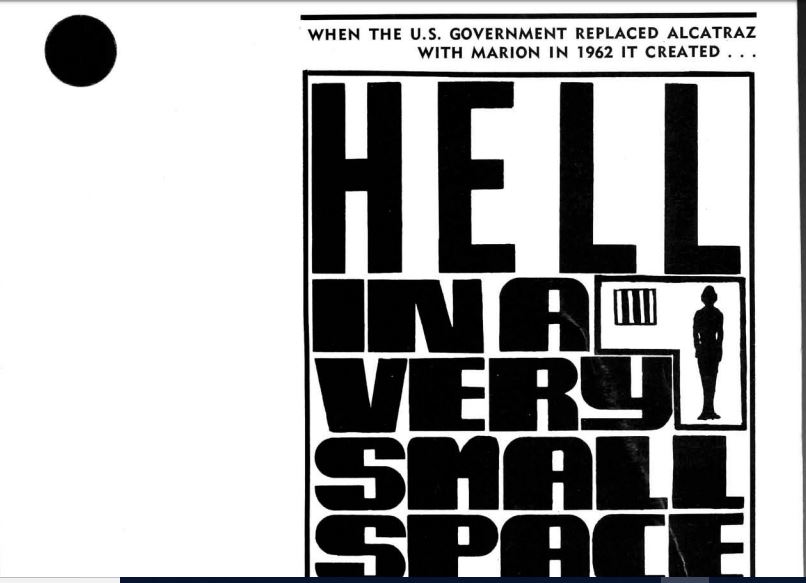
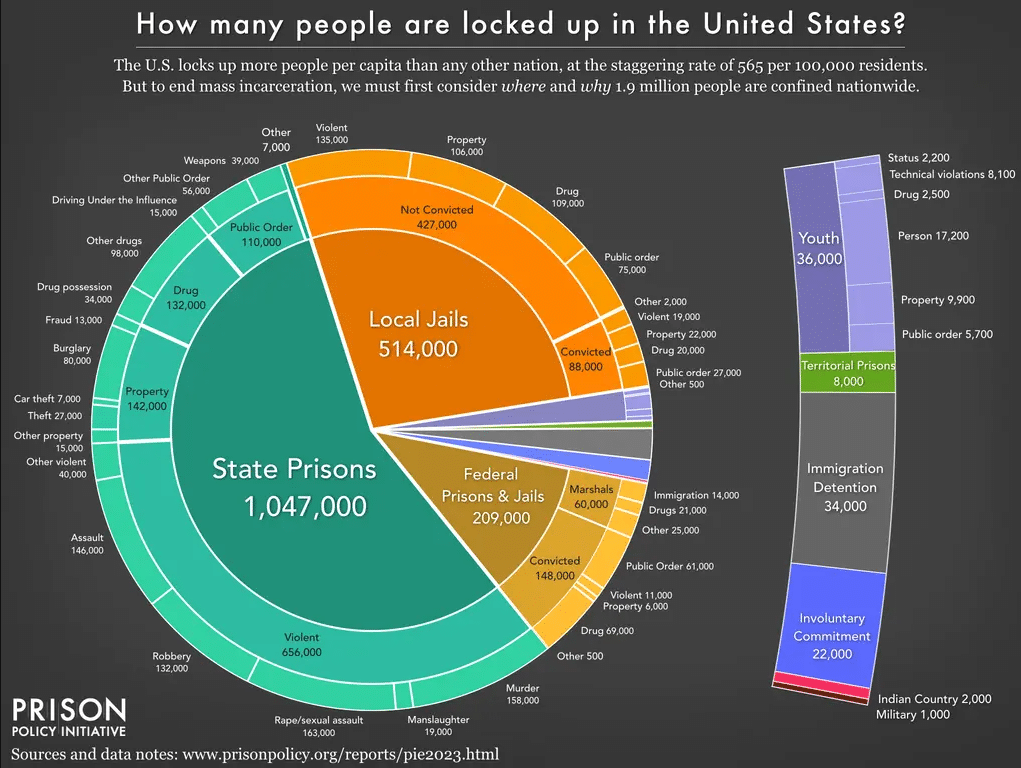





Twitter
Google plus
LinkedIn